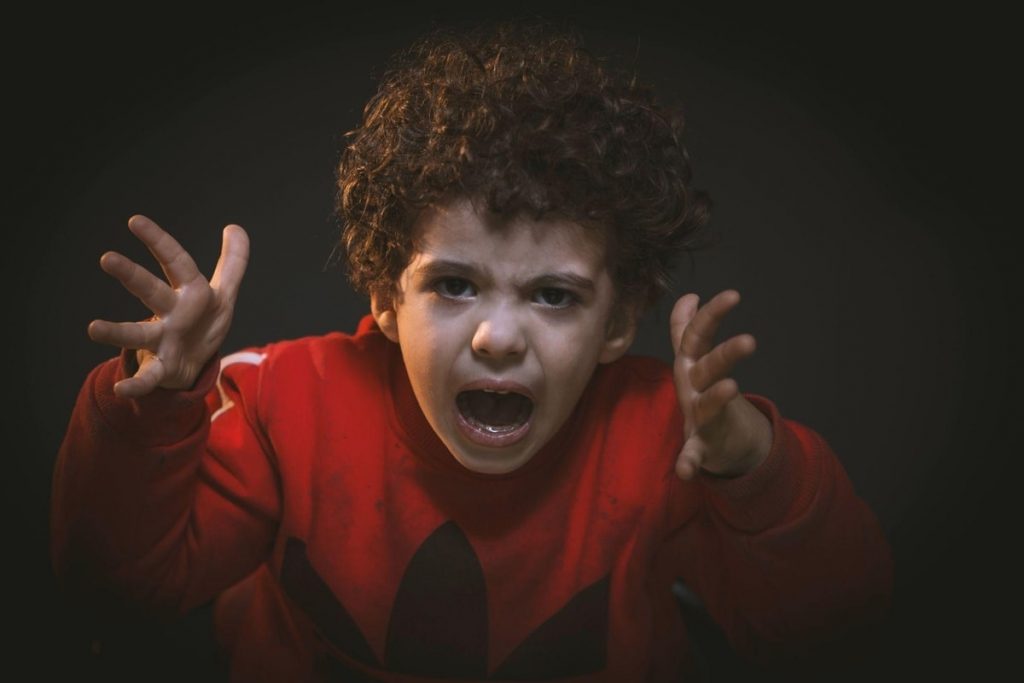A Quick Guide To Conduct Disorder | Types, Symptoms, Effects, And More

Is your child constantly violating rules and behaving socially inappropriately? There might be a possibility that your child has a conduct disorder. Defined as a set of behavioral and emotional issues, conduct disorder causes children and teenagers to behave appropriately in social situations.
This disorder normally occurs during childhood and teenage years and can cause your child to lack manners and break rules in social and public settings.
The behavior they display can be aggressive, destructive, and unethical. Many times, this kind of behavior may be perceived as troublesome rather than as a mental disorder.
Let’s read the symptoms and signs of conduct disorder, why it happens, and how you can help your child cope.
Did You Know?
Conduct disorder develops before the age of 10 and is more commonly diagnosed in boys than girls and children diagnosed with ADHD are more prone to develop conduct disorder.
If your child or teen is diagnosed with conduct disorder then proper medical treatment is required.
Types Of Conduct Disorder

Conduct disorder can be classified into three types according to the age when the first symptoms begin.
- Childhood: When the signs occur before 10 years of age.
- Adolescent: When the signs occur during the teenage years.
- Unspecified: When you can’t specify when the first signs appeared.
Conduct disorder, along with oppositional defiant disorder (ODD), is considered a type of disruptive behavior disorder and is one of the common mental health disorders in children and teenagers.
Conduct disorder may cause them sudden aggressive and violent outbursts that can affect their family and social life.
Conduct Disorder Sign & Symptoms

Children diagnosed with conduct disorder often act on impulse and are reluctant to follow rules and other social norms. If you feel your child has conduct disorder, then lookout for these signs and symptoms.
- Aggressiveness
- Dishonesty
- Being destructive
- Violating the rules
- Bullying others
- Being intimidating
- Threatening others with bodily harm
- Stealing
- Skipping classes
- Running away from home
- Using illegal substances
- Underage drinking or smoking
Boys with conduct disorder are more likely to have aggressive and destructive behavior while girls with conduct disorder are more likely to display dishonesty and violating rules.
Conduct disorder can often co-occur with other behavioral disorders or mental health disorders such as
- ADHD
- Oppositional defiant disorder (ODD)
- Anxiety
- Depression
- Substance abuse
- Bipolar disorder
Causes Of Conduct Disorder

Both genetic and environmental factors may contribute heavily to the development of conduct disorder. Any damage to the brain’s frontal lobe can cause conduct disorder. The frontal lobe controls behaviors such as problem-solving, emotional expression, and other cognitive functions.
Not only conduct disorder, but any damage to the frontal lobe may cause:
- A lack of impulse control
- An inability to plan properly
- An inability to learn from past experiences
Environmental factors or situational factors can also contribute to the development of conduct disorder. Situations such as childhood abuse, growing up in a dysfunctional family, parents with addiction, can also cause children to develop conduct disorders.
If a child or teen is showing signs of conduct disorder, then you need to immediately contact a professional mental health therapist for a diagnosis. A professional may ask questions to the child about their behavior to make a diagnosis.
To be diagnosed with conduct disorder, a child needs to show at least three symptoms or negative behavioral patterns.
Conduct disorder diagnosis must be made by a professional psychologist only.
Conduct Disorder In Adults
There can be long-lasting impacts of conduct disorders depending on the intensity and constancy of the child’s problems and behavioral patterns. Children with unresolved and untreated conduct disorders may not easily adapt to the demands of their adulthood.
They may have difficulty holding healthy relationships, holding down a job, and may become prone to get into trouble with law enforcement.
If left untreated, a child may develop personality disorders and can be later diagnosed with antisocial personality disorder. Early diagnosis and treatment are crucial.
Treatment For Conduct Disorder

Most commonly, talk therapy is recommended to help your child express their emotions and process their feelings the right way. A therapist can also help you, the parent or guardian, learn how to control your child’s aggressive or violent behavior.
If your child is diagnosed with other disorders such as ADHD, a therapist may prescribe certain medications to control the symptoms of both disorders.
Please remember that it takes time to form new behavioral patterns and children with conduct disorders may require long-term treatment. However, early diagnosis and treatment can help slow down the development of their disorder.
Family therapy and cognitive-behavioral therapy (CBT) can also prove effective when treating conduct disorder. Another treatment approach when it comes to conduct disorder treatment can include multi-system therapy. Under this therapy, a child receives treatment in various situations. These can include their school, home, or social life.
In any case, early diagnosis and treatment are important when it comes to conduct disorders. Many adults with conduct disorder can learn to live a happy, calm, and peaceful life with the right help.
If your child is showing signs of conduct disorder, it is recommended that you connect with a professional for a proper diagnosis.
I hope with this article you were able to understand what is conduct disorder, the types, symptoms, and effects of conduct disorders in adults. For more, you can connect with us at info@calmsage.com or DM us on our social media.
Take care and stay safe!




















